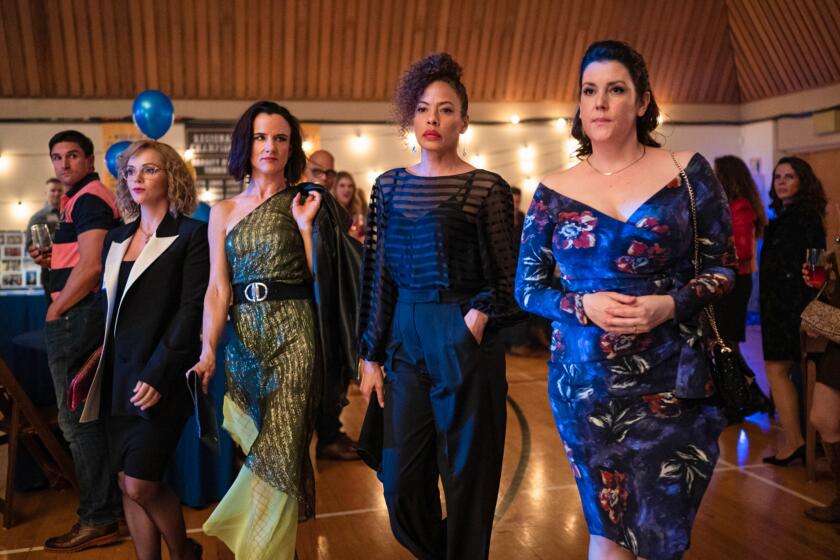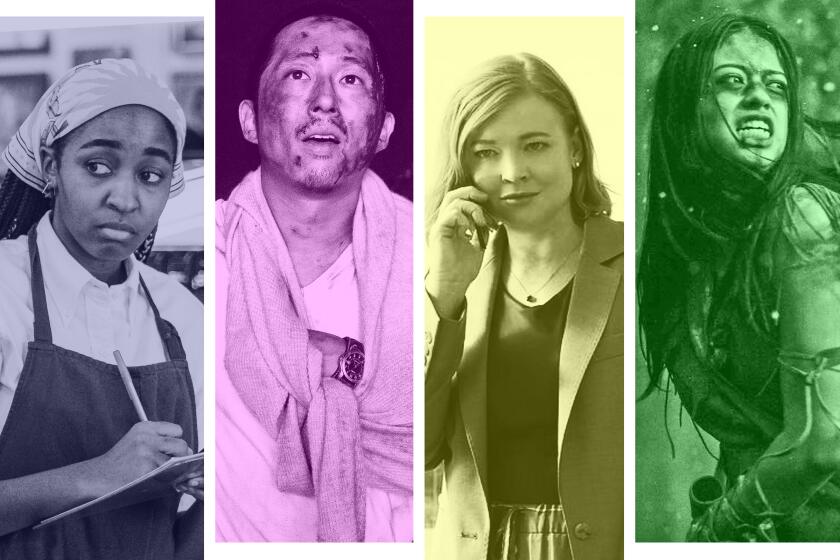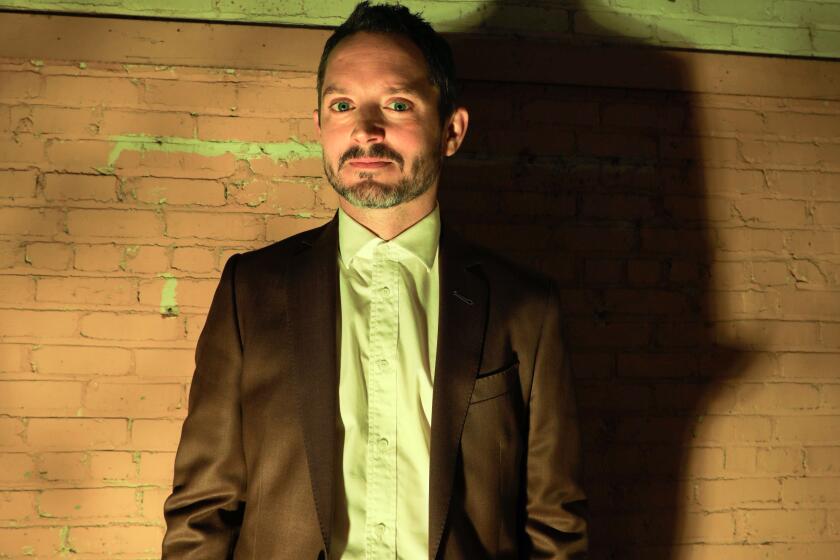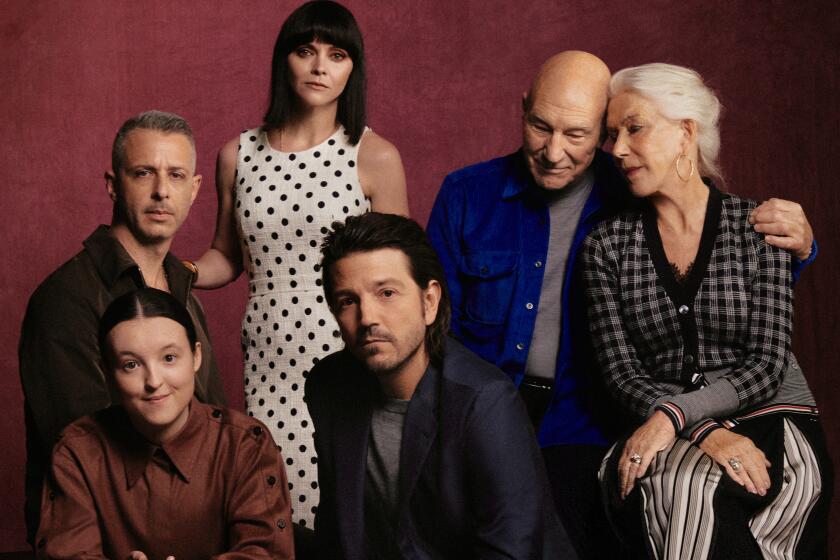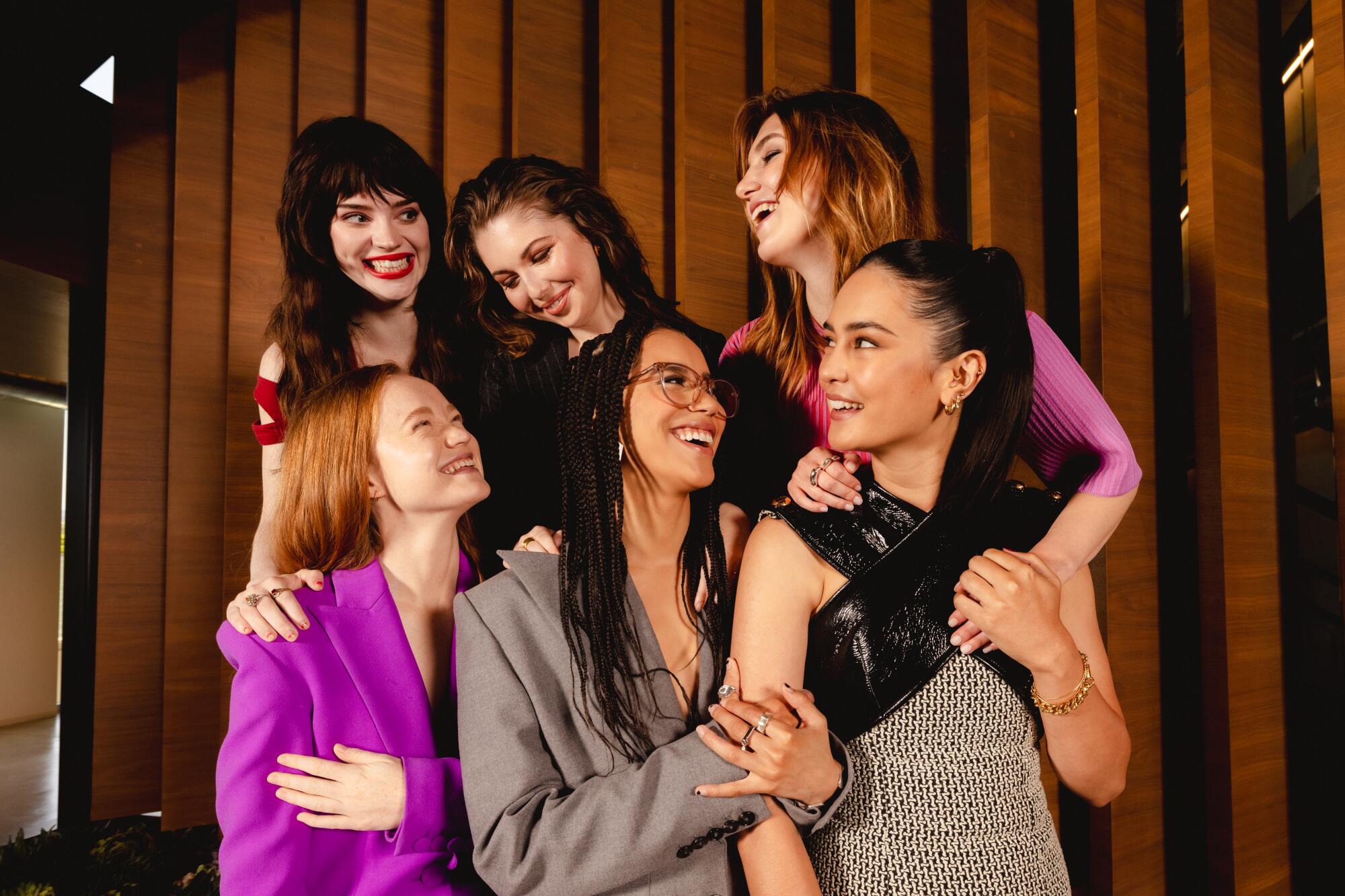
- Share via
Liv Hewson is wondering if this is the same room. “We were trying to figure it out,” they say. “Where we’re having this discussion right now, it’s the same building that I auditioned for the show. We all came here, right?”
It was years ago that Hewson and the rest of the cast that play the teenagers in “Yellowjackets” first read for their roles. We’re sitting in a conference room at Showtime’s Hollywood offices, and Hewson (who plays Van) is joined by their co-stars: Jasmin Savoy Brown (Taissa), Courtney Eaton (Lottie), Samantha Hanratty (Misty), Sophie Nélisse (Shauna) and Sophie Thatcher (Natalie). Much has happened since those early days — chiefly, the critical acclaim and intense fandom that greeted the show’s first season, which both follows the teens as they fight to stay alive after their 1996 plane crash and chronicles the survivors as adults now in the present.
Season 2 proved just as gripping, and even more upsetting, and the sextet catch up while soaking in online response to the most recently aired episode, “Qui,” in which audiences learn the shocking truth of what happened to Shauna’s pregnancy out there in the woods.
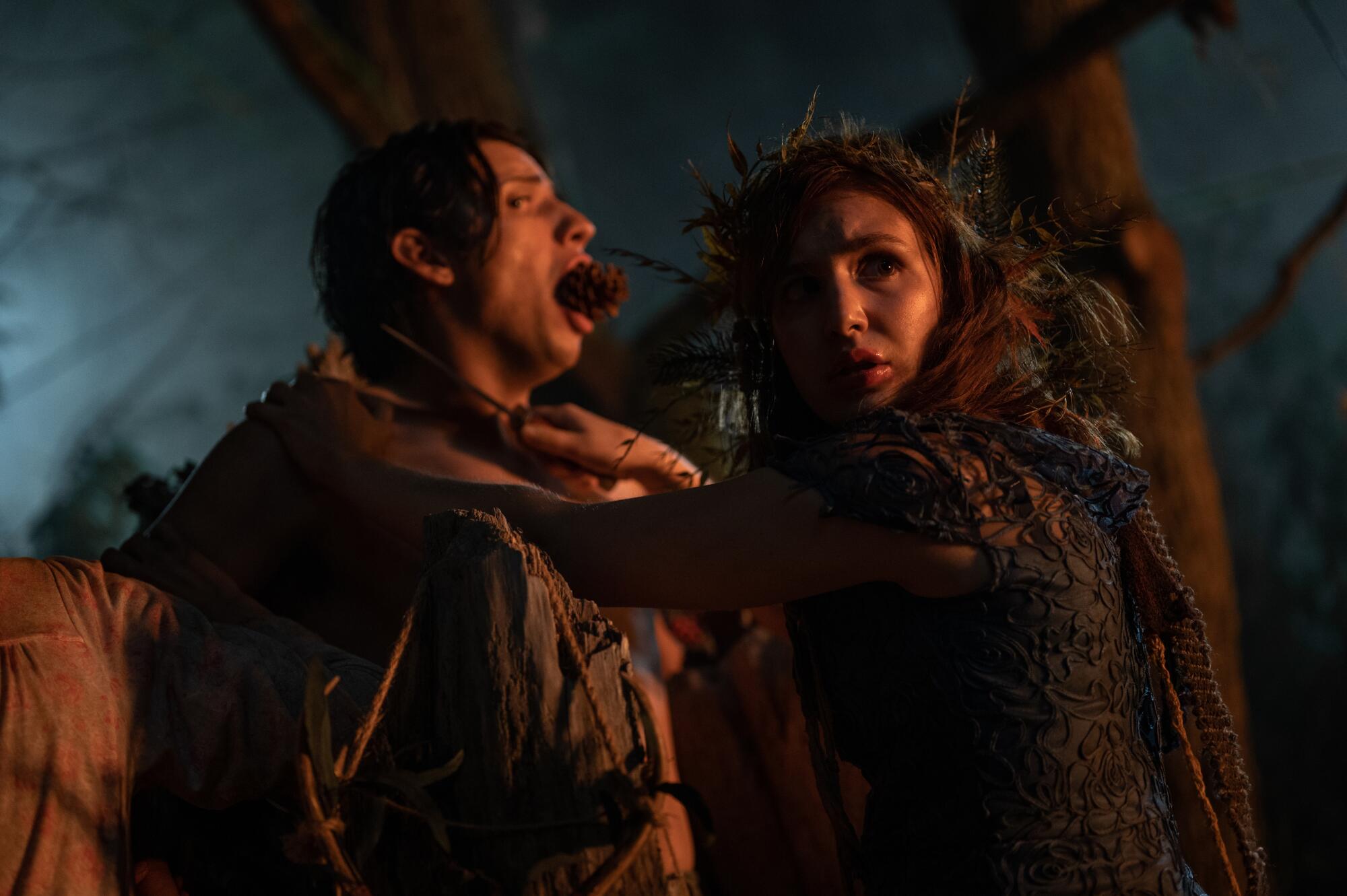
“It’s been very overwhelming,” says Nélisse, who gives a heartbreakingly anguished performance in “Qui.” But although everyone is in good spirits, she and her fellow actors are still processing the physically and emotionally grueling second season. Did the writers give Nélisse any sense of what Shauna’s harrowing journey would be like?
“We’re really not given anything,” she says, prompting a chorus of sympathetic laughter. “I would appreciate [knowing], but also it kind of works, because our characters don’t actually know what’s going to happen to them.”
Naturally, the cast suspected their characters’ situation would only get worse, but they didn’t anticipate how bad. Cannibalism, dead babies, murder: This women’s soccer team faced a little bit of everything, and eventually it impacted the actors away from the set.
Series creators Ashley Lyle and Bart Nickerson discuss all of Episode 10’s key moments. Plus, they reveal who they got in that “Yellowjackets” quiz.
“I started having bad dreams,” Brown says.
“By the end of the season, everyone was having bad dreams,” Thatcher adds.
“I still am,” Brown tells Thatcher. “My dreams are f— now. Are yours too?
“Very violent,” Thatcher replies.
Hearing others talking about their lingering trauma triggers a feeling of guilt for Nélisse.
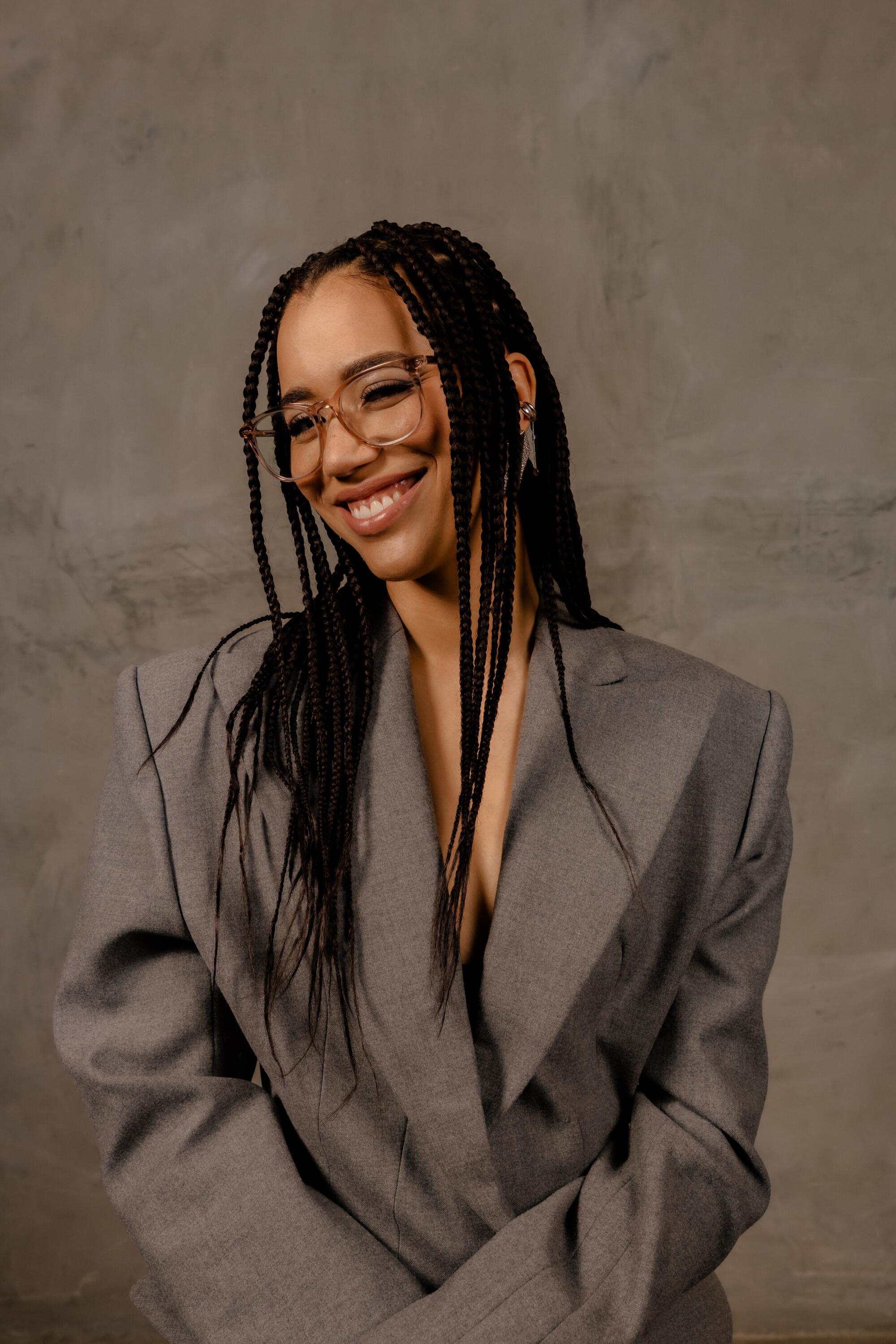
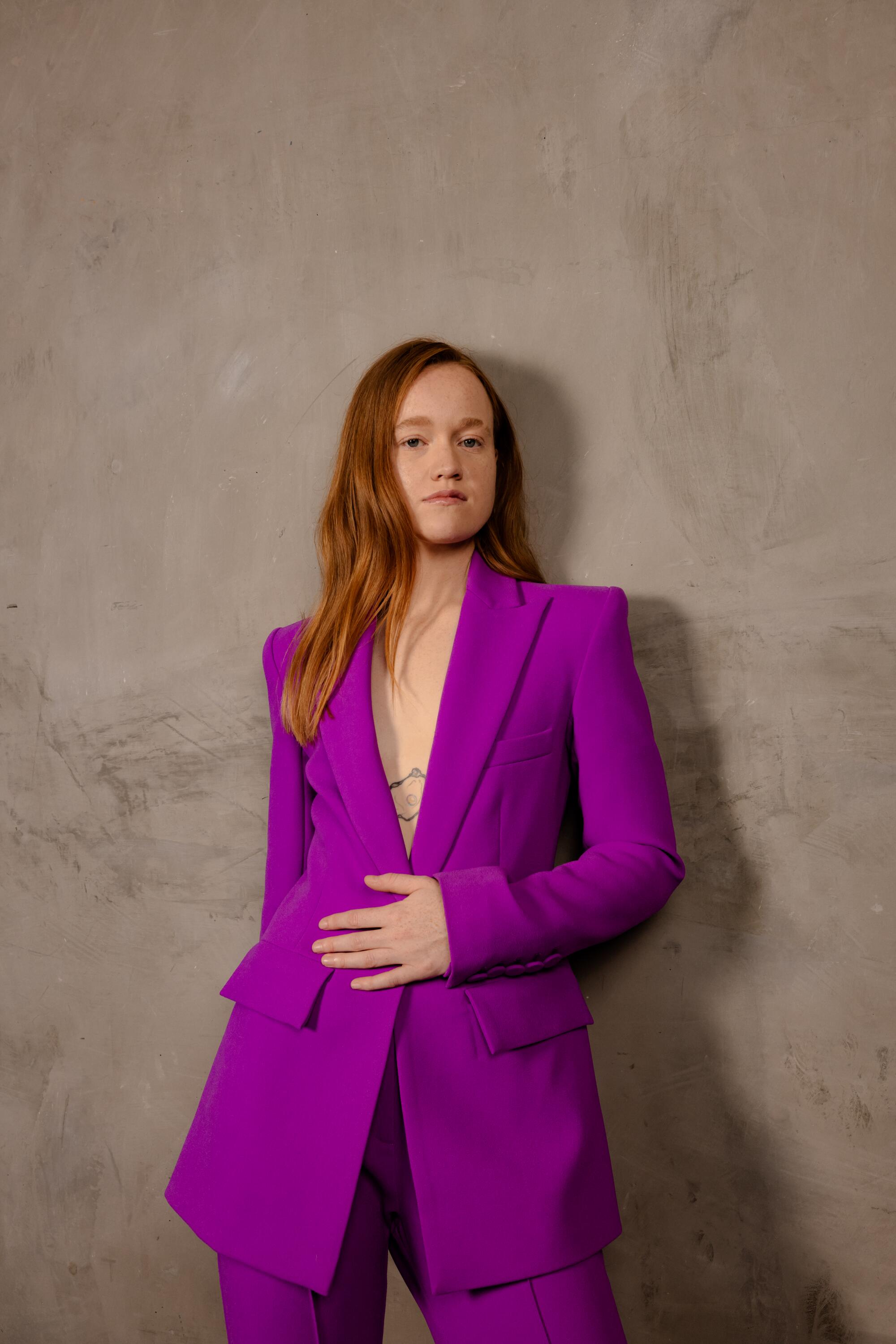
“I feel like the biggest impostor,” she admits. “I know we all have impostor syndrome, but I genuinely don’t know what it feels like to be in a character. Obviously, I know how to cry and I find sadness in my life to be able to cry. But you call, ‘Cut,’ and [then] I’m chilling. I’ve never felt affected by one of my roles. I’m doing a scene and I’m sobbing, but I’m thinking about the camera guy that has his shirt inside out.”
The rest of the actors offer encouragement, insisting that no one’s process is better than another. This inspires Thatcher to discuss being comfortable with solitude while getting into character. “I make music, and music is just really the most important thing to me,” she explains. “I learned on Season 2 that I can go to my trailer and have alone time and people will respect that — I don’t always have to hang out. I put in my headphones and get in that headspace.” As for her playlist, Thatcher replies, “Season 2, Natalie is just more conflicted — she’s more isolated, more depressed — so, more Elliott Smith.”
Our BuzzMeter panel of veteran TV journalists predicts the winners in 14 categories of the 2023(?) Emmys. You can, too, in our weekly polls.
Inside jokes and a flurry of compliments bounce around the table throughout the hour-long conversation. But the actors also reveal a certain amount of vulnerability, feeling safe around one another. When Eaton attempts to describe the enigmatic Lottie, she acknowledges that, two seasons in, it’s still a challenge.
“Lottie is such a trick to try to explain,” Eaton says. “She represents something not as physical as the rest of the characters. She’s more of an idea that is pushing the show forward. It’s hard to break that down. I just intuitively know what she’s going to do.”
“You’re such an instinctive performer,” Hewson replies reassuringly, as the others nod.
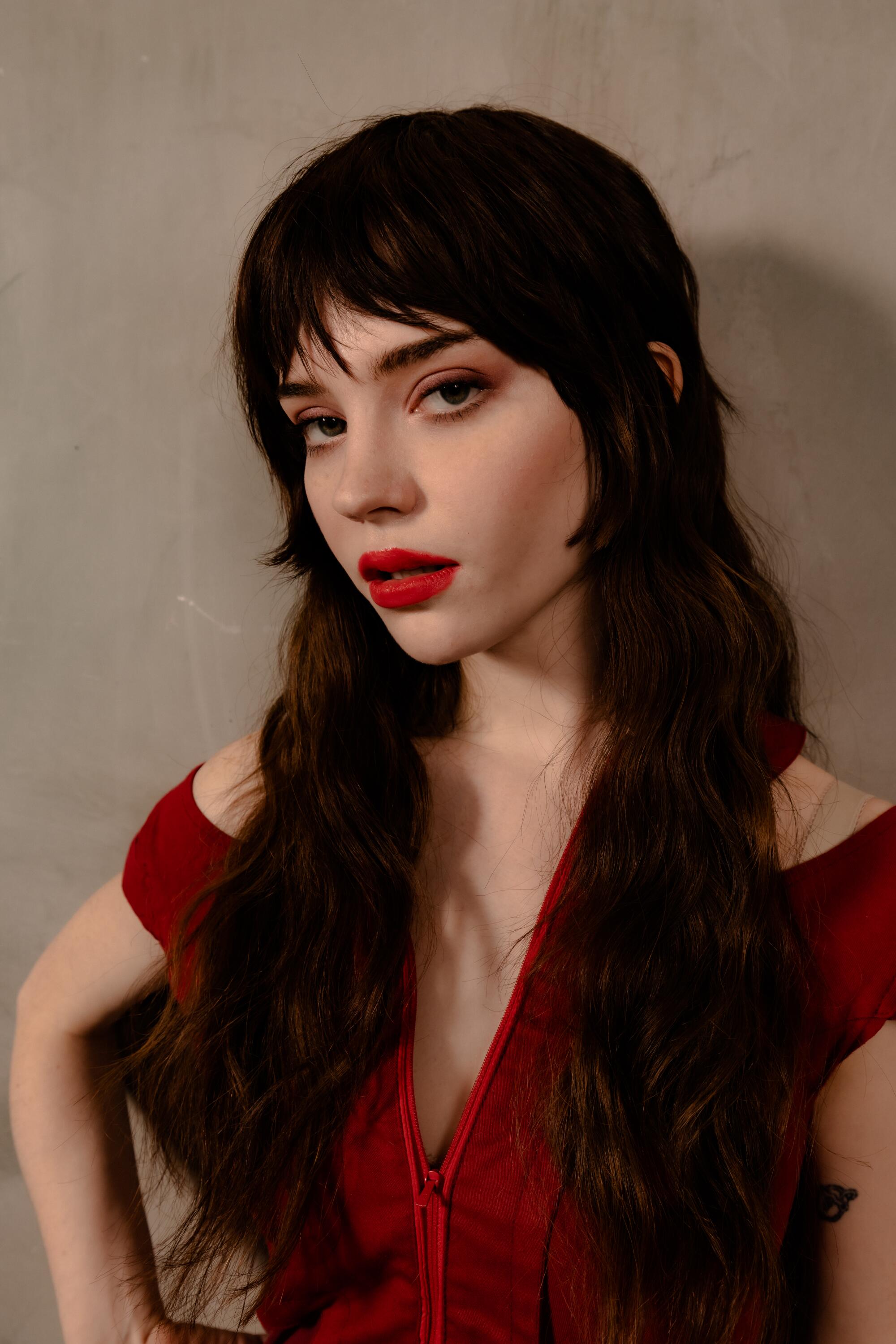
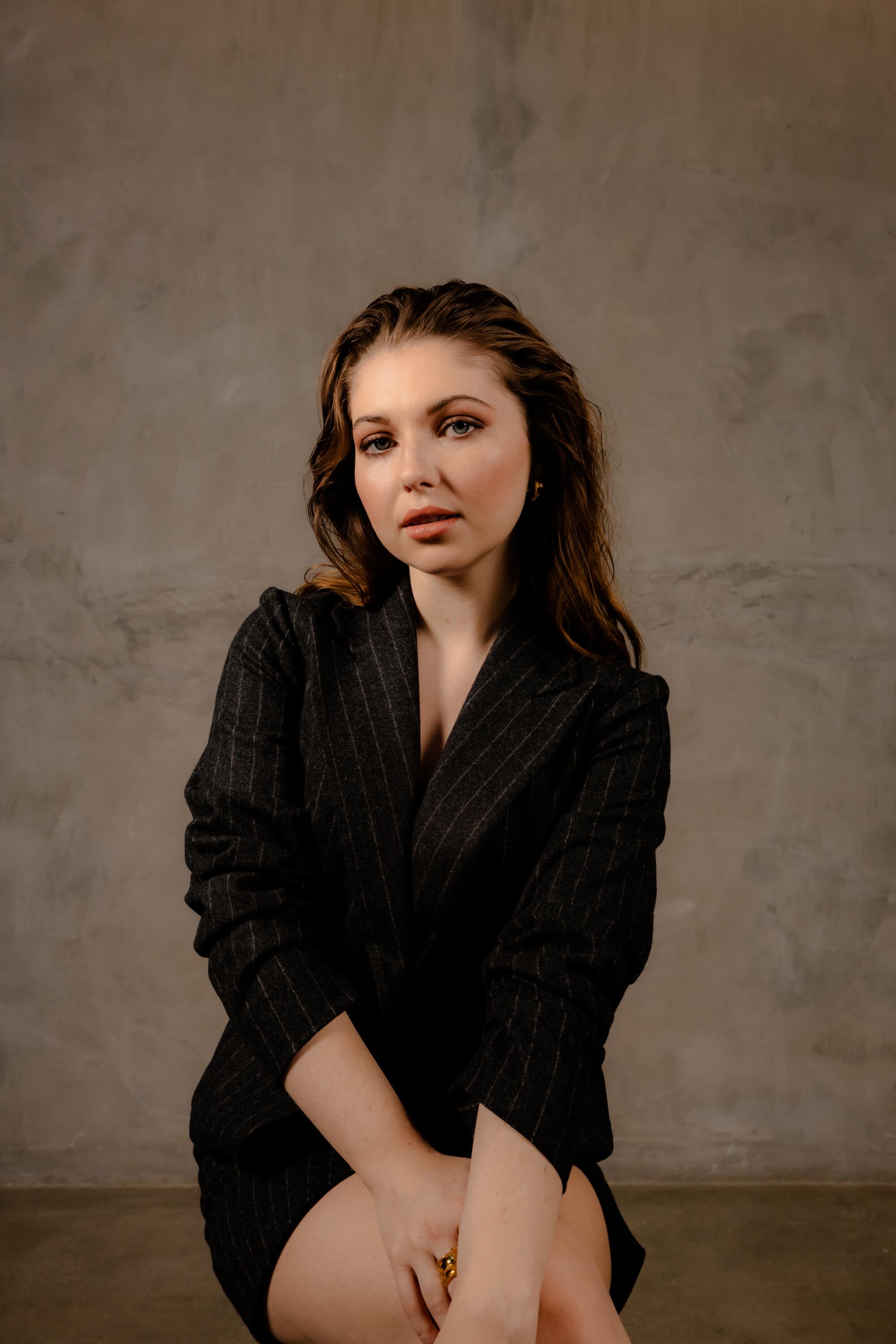
For Hanratty, adjusting to playing the scheming, needy Misty has gotten easier, but not without some pain along the way.
“Me and Misty have a similarity in that we’re both a lot,” Hanratty says. “I know I’m a lot, and I think that Season 1, I was very self-conscious of that. I felt insecure — anything little that happened, I was so sensitive to it. It could just be a look that somebody didn’t even mean to do, and I’m like, ‘Everybody hates me.’”
The ‘Lord of the Rings’ star, who plays Walter in Season 2 of Showtime’s drama, on his true-crime obsession, reuniting with Christina Ricci and more.
Eaton chimes in: “Also, you’re [doing] a full physical transformation, more so than we are. That’s going to have an effect on the way you see yourself. For a whole day, we shoot how many hours, and you go back to your trailer and you don’t see you in the mirror.”
“I’m not going to lie: I feel ugly. I don’t feel cute,” Hanratty responds. “Well, this season I feel cute, but first season I didn’t feel cute. I felt like a big person — I felt like I was just huge in this world, like I’m suffocating people around me. But I got on anxiety medication.” She laughs. “I’m doing much better now.”
“Shout out Lorazepam!” Brown says. “No, wait, that’s me.”
“Lexapro for me, baby!” says Hanratty, later noting, “Jasmin is really good at advocating for herself and being like, ‘I’m not comfortable with this.’ And that inspires me to go, ‘Oh, OK, I can say that too.’”
“So often, I’m the only Black woman in the room,” Brown replies, “so I’ve had to learn how to thread this line between standing up for myself but not doing it in a way that comes off as ‘bossy’ or ‘mean.’” She smiles mischievously. “But I am an Aries, so it’s natural to me.”
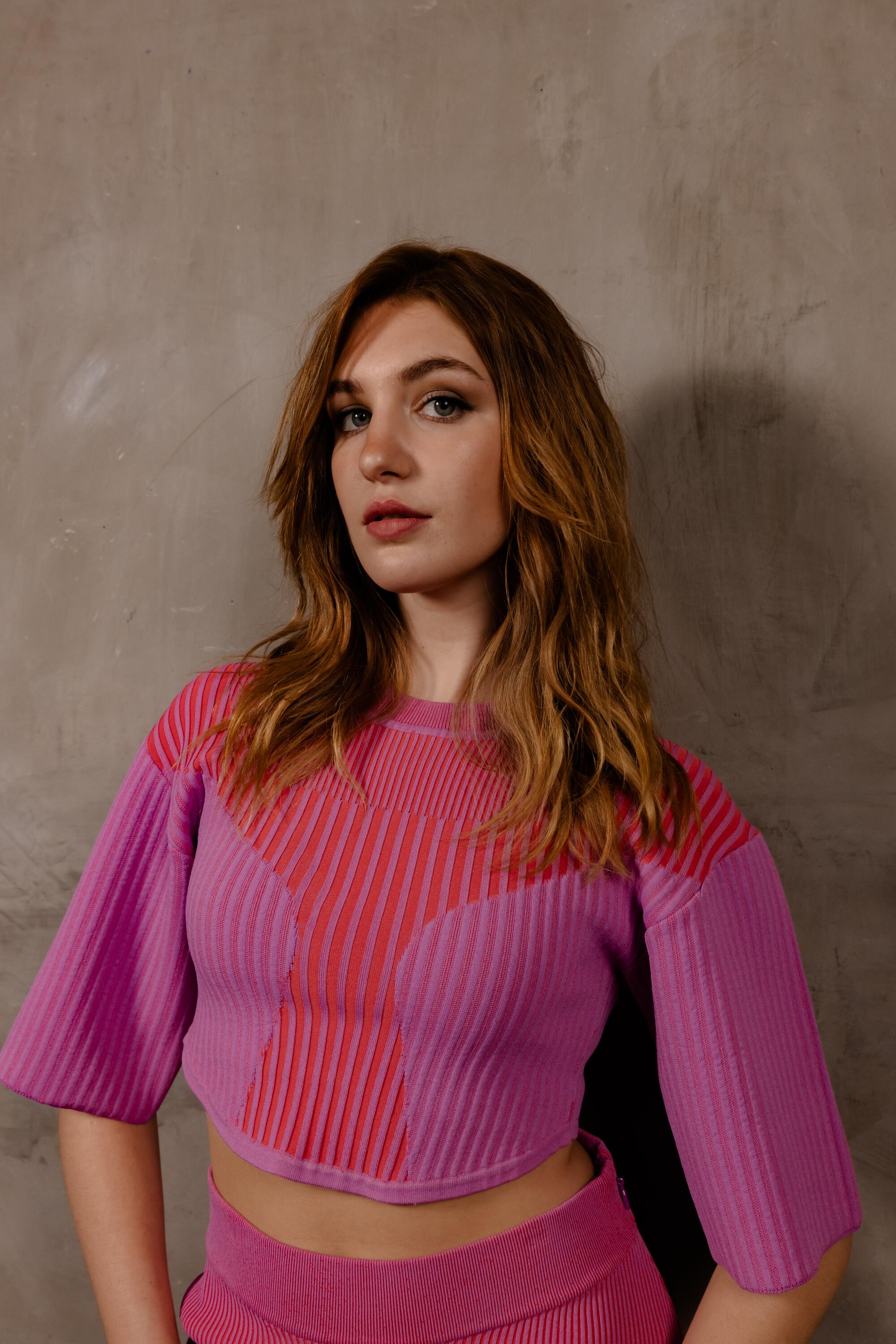
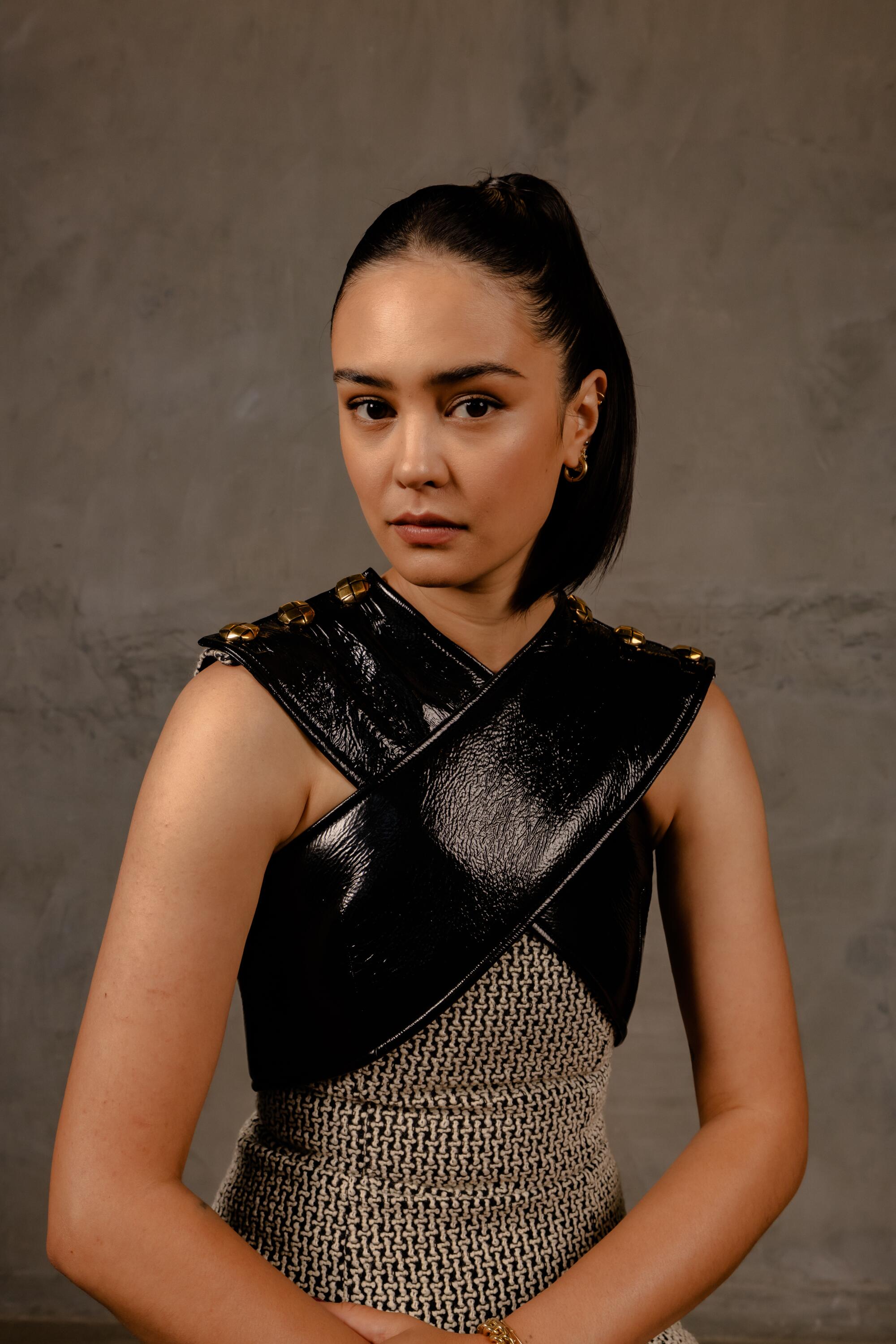
This season was filled with mixed emotions for Brown. “I did not hang out,” she says. “I was busy falling in love, so I was not interested in hanging out. And, also, I had a really awful death in my family this season. So I just didn’t want to be around for anything.”
Speaking out is also something important to Hewson, who uses they/them pronouns — and not just in terms of ensuring that Taissa and Van’s romantic relationship has depth. (“Being able to portray this relationship is special to me,” they say. “I care about it. It’s something that I would’ve loved [to see] as a [younger] audience member.”) In late April, Hewson announced that they wouldn’t be submitting themselves for Emmy consideration because of the awards’ gendered acting categories.
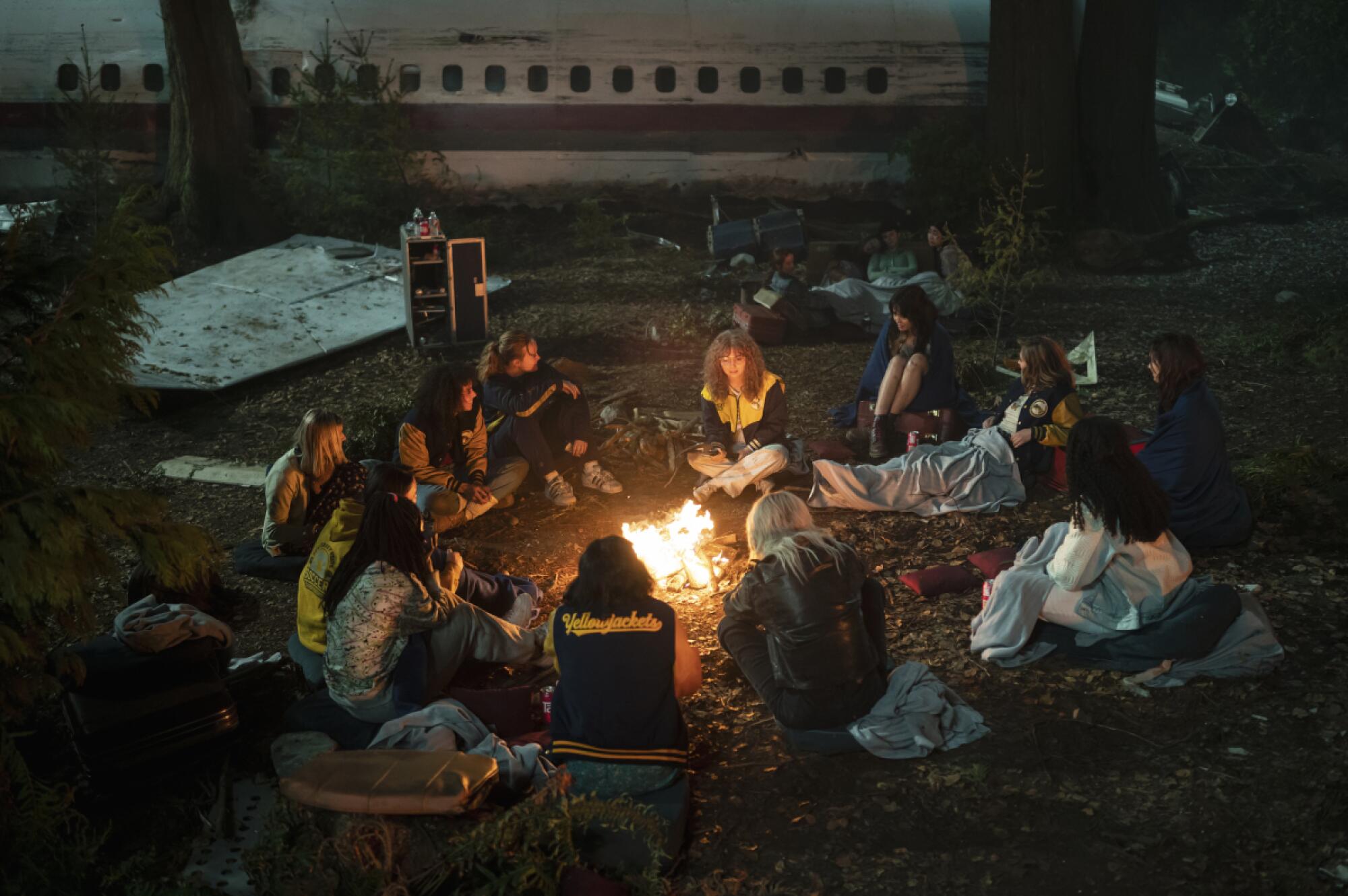
“What is structurally different about acting that requires it to be separated by sex?” asks Hewson, who insists they have no issue with fellow nonbinary actors choosing to participate in the Emmy race. “For some reason, in this one specific job, there is a category for men and a category for women, and I am neither of those things. Why is the onus on me to respond to a system that is arbitrarily set up to not include me? I’m not going to bend over backwards to try and make that easier for anybody else. You fix it.”
In a roundtable conversation, Diego Luna, Helen Mirren, Bella Ramsey, Christina Ricci, Patrick Stewart and Jeremy Strong dive deep into their appreciation of writers, mothers and “not giving a f--”
One of the advantages of the cast being constantly left in the dark about what happens next on “Yellowjackets” is that they don’t have to worry about spoiling anything. (“I know that the cabin is burned down,” Hanratty says in such a way that it’s not entirely clear if she’s joking. Though by now, fans of the series will know.) But these actors fully expect more treacherous things to come. They survived this season, so bring it on.
“I think Season 3, we’re just hoping for the downfall of everyone,” Eaton says.
“I’m so curious,” Nélisse responds. “And a little scared.”
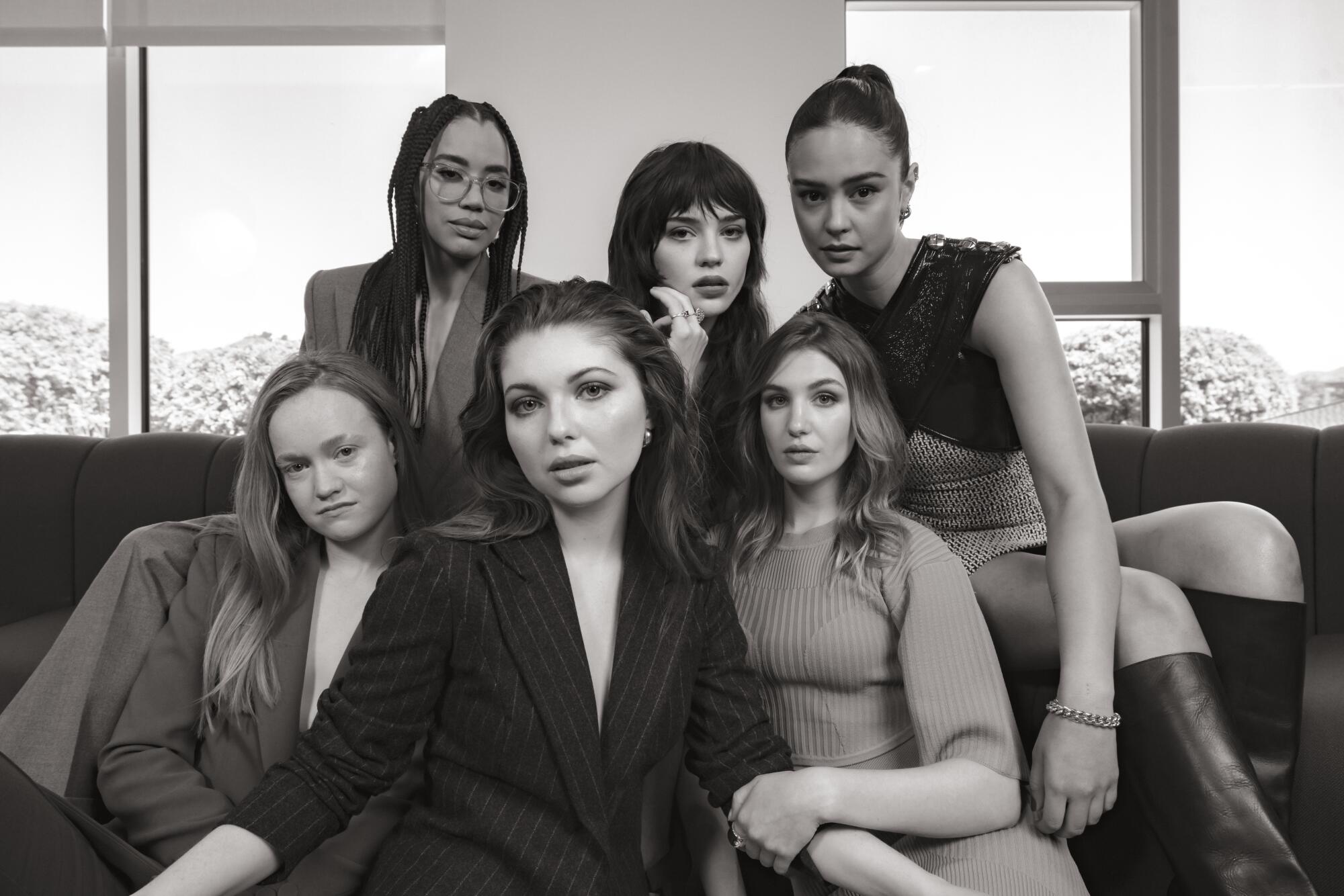
More to Read
From the Oscars to the Emmys.
Get the Envelope newsletter for exclusive awards season coverage, behind-the-scenes stories from the Envelope podcast and columnist Glenn Whipp’s must-read analysis.
You may occasionally receive promotional content from the Los Angeles Times.
